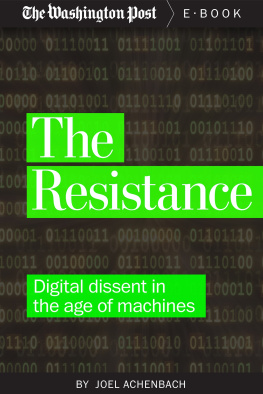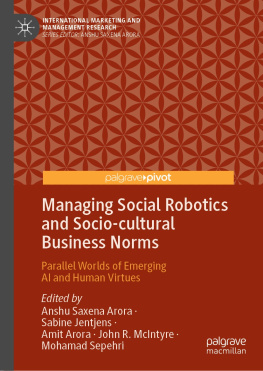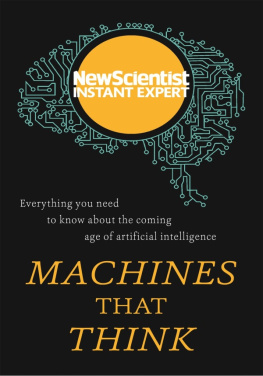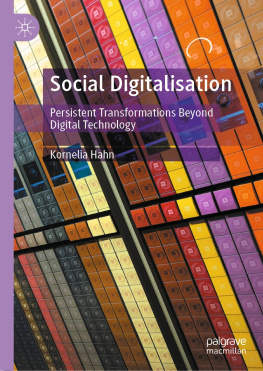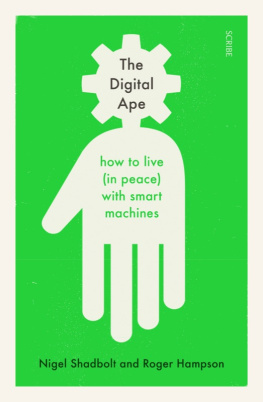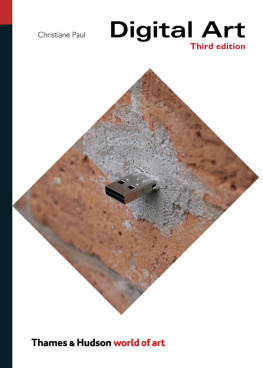The Technologisation of the Social
In an era of digital revolution, artificial intelligence, big data and augmented reality, technology has shifted from being a tool of communication to a primary medium of experience and sociality. Some of the most basic human capacities are increasingly being outsourced to machines, and we increasingly experience and interpret the world through digital interfaces, with machines becoming ever more social beings. Social interaction and human perception are being reshaped in unprecedented ways. This book explores this technologisation of the social and the attendant penetration of permanent liminality into those aspects of the lifeworld where individuals had previously sought some kind of stability and meaning. Through a historical and anthropological examination of this phenomenon, it problematises the underlying logic of limitless technological expansion and our increasing inability to imagine either ourselves or our world in other than technological terms. Drawing on a variety of concepts from political anthropology, including liminality, the trickster, imitation, schismogenesis, participation and the void, it interrogates the contemporary technological revolution in a manner that will be of interest to sociologists, social and anthropological theorists and scholars of science and technology studies with interests in the digital transformation of social life.
Paul OConnor is Assistant Professor in the Department of Government and Society at United Arab Emirates University, Al Ain, United Arab Emirates. He is the author of Home: The Foundations of Belonging.
Marius Ion Bena is Research Fellow in the Department of Social and Human Studies at the George Bariiu History Institute, Cluj, Romania. He is the co-editor of Walling, Boundaries and Liminality: A Political Anthropology of Transformations and the author of Experiencing Multiple Realities: Alfred Schutzs Sociology of the Finite Provinces of Meaning.
Contemporary Liminality
Series editor: Arpad Szakolczai, University College Cork, Ireland.
Series advisory board: Agnes Horvath, University College Cork, Ireland; Bjrn Thomassen, Roskilde University, Denmark; and Harald Wydra, University of Cambridge, UK.
This series constitutes a forum for works that make use of concepts such as imitation, trickster or schismogenesis, but which chiefly deploy the notion of liminality, as the basis of a new, anthropologically-focused paradigm in social theory. With its versatility and range of possible uses rivalling mainstream concepts such as system, structure or institution, liminality by now is a new master concept that promises to spark a renewal in social thought.
While charges of Eurocentrism are widely discussed in sociology and anthropology, most theoretical tools in the social sciences continue to rely on approaches developed from within the modern Western intellectual tradition, whilst concepts developed on the basis of extensive anthropological evidence and which challenged commonplaces of modernist thinking, have been either marginalised and ignored, or trivialised. By challenging the taken-for-granted foundations of social theory through incorporating ideas from major thinkers, such as Nietzsche, Dilthey, Weber, Elias, Voegelin, Foucault and Koselleck, as well as perspectives gained through modern social and cultural anthropology and the central concerns of classical philosophical anthropology Contemporary Liminality offers a new direction in social thought.
Titles in this series
13. Political Alchemy: Technology Unbounded
Agnes Horvath
14. Liminality and the Philosophy of Presence: A New Direction in Political Theory
Franziska Hoppen
15. Post-Truth Society
A Political Anthropology of Trickster Logic
Arpad Szakolczai
16. The Technologisation of the Social
A Political Anthropology of the Digital Machine
Edited by Paul OConnor and Marius Ion Bena
For more information about this series, please visit: https://www.routledge.com/Contemporary-Liminality/book-series/ASHSER1435
The Technologisation of the Social
A Political Anthropology of the Digital Machine
Edited by Paul OConnor and Marius Ion Bena
First published 2022
by Routledge
2 Park Square, Milton Park, Abingdon, Oxon OX14 4RN
and by Routledge
605 Third Avenue, New York, NY 10158
Routledge is an imprint of the Taylor & Francis Group, an informa business
2022 selection and editorial matter, Paul OConnor and Marius Ion Bena; individual chapters, the contributors
The right of Paul OConnor and Marius Ion Bena to be identified as the authors of the editorial material, and of the authors for their individual chapters, has been asserted in accordance with sections 77 and 78 of the Copyright, Designs and Patents Act 1988.
All rights reserved. No part of this book may be reprinted or reproduced or utilised in any form or by any electronic, mechanical, or other means, now known or hereafter invented, including photocopying and recording, or in any information storage or retrieval system, without permission in writing from the publishers.
Trademark notice: Product or corporate names may be trademarks or registered trademarks and are used only for identification and explanation without intent to infringe.
British Library Cataloguing-in-Publication Data
A catalogue record for this book is available from the British Library
Library of Congress Cataloging-in-Publication Data
A catalog record has been requested for this book
ISBN: 9780367511661 (hbk)
ISBN: 9780367511685 (pbk)
ISBN: 9781003052678 (ebk)
DOI: 10.4324/9781003052678
Typeset in Times New Roman
by Deanta Global Publishing Services, Chennai, India
Contents
Paul OConnor
Arpad Szakolczai
Tom Boland
Agnes Horvath
Daniel Gati
Ray Griffin
Stephen Turner
Marius Ion Bena
Thomas S. J. Smith
Janos Mark Szakolczai
Paul OConnor
Marius Ion Bena
Contributors
Marius Ion Bena works on such topics as corruption, technology, media, modernity, mystical experience, nationalism and identity and places his research within the theoretical frameworks of reflexive-historical sociology, political anthropology and phenomenological sociology. Marius received his PhD in 2014 from University College Cork, Ireland, with a thesis on Alfred Schutzs sociology of multiple realities. He is Research Fellow in sociology at George Bariiu History Institute and Associate Lecturer at Babe-Bolyai University in Cluj, Romania, and was a junior researcher at the Polish Institute of Advanced Studies PIASt, Warsaw, Poland. His recent publications include a monograph (Experiencing Multiple Realities: Alfred Schutzs Sociology of the Finite Provinces of Meaning, Routledge, 2018), a collective volume co-edited with Agnes Horvath and Joan Davison (Walling, Boundaries and Liminality: A Political Anthropology of Transformations, Routledge, 2018) along with papers and chapters in peer-reviewed publications. He is Associate Editor of the International Political Anthropology journal.
Tom Boland is Senior Lecturer in the Department of Sociology and Criminology at University College Cork, Ireland. His recent publications include articles in anthropology, philosophy, sociology and theology, and his 2019 book


